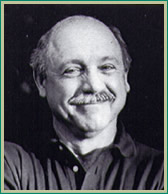
Searching for Balance
|
 |
|
| Domenico Piazza Senior Associate |
I have spent the better part of my professional life in school buildings. In many ways, they are all alike. Regardless of age, you can count on long hallways, the signs directing visitors to the Main Office, the waft of floor polish, bulletin boards of class projects, trophy cases, and the classrooms, stretching along the halls in different directions. Even on the first visit, one gets the sensation that this is a familiar place.
The persons who inhabit such places are also remarkably alike. There seems to be a common sense of clothing style preferred by teachers and administrators, as well as a demeanor that brings to mind one’s own history of school life.
There is a language peculiar to schools, which, like many professions, embraces the jargon of the “learning community.” When you speak its native tongue, you are recognized as a kindred spirit. There is also a teacher/administrator voice when interacting with the student “body.” Teachers, who refer to their charges as “people” when addressing a group, are using a term almost unknown in non-school conversations.
Yet, with all the similarities, I become aware within minutes of working with staff that there are differences worth noting. I think of the difference in terms of balance. What I am tuned to in this regard has to do with the brain. I begin picking up clues from conversations about the values placed on right- and left-brain activities. What, in fact, are educators really excited about? Where’s the focus of attention? What matters most here? These are questions I ask myself and often direct to staff members. Where’s the energy coming from? How they respond gives me a sense of the “back story” of the place, that ongoing narrative that shapes the thinking and actions of this particular school.
It will come as no surprise that most of the energy, if you can call it that, issues from impending testing events. These events are essentially left-brained in nature; that is, they require of students the remembering of data, facts, and formulas. And they require the adequate use of language and mathematical operations to demonstrate competence. This is, after all, a common way for all of us who have come through the system to think about schooling. But is that what we truly remember?
As I spend more time with individual teachers and principals, talking about their school experiences, another sensibility begins to surface. For older educators, certain emotionally based memories enter the dialogue. I hear references to experiences they’ve had that seemed life-altering, life-giving. One principal told me about his first performance in a school choir, which was performing a section of Handel’s “Messiah.” I watched his face light up as he recalled a moment when the tenor section layered in a harmony with the sopranos that he said “nearly stopped my heart.” An English teacher in an inner-city school described a moment when her class helped her uncover the central concept of a Greek play. The stubborn heroine refused to abandon her principles even in the face of death. The students told her the character was like a wall, an unmovable object. This became the organizing idea that drove the examination of the play. The teacher told me, “The character would not compromise! But is that always a good thing? After all, what else needs to be considered?” The play had taken the class into unexplored territory. She said she could feel the immediacy of this question in the tense silence of her class.
At a workshop for teachers, I often ask the question, “Who in this room has been hurt by a teacher?” Hands go up. “Can you remember the grade? The teacher’s name?” The event itself?” Nearly all hands are in the air. When I ask if any would share the experience, we listen as teachers describe the moment of the injury, with full details. Teachers in their fifth and sixth decades provide detailed pictures of the moment, some as far back as elementary school. In many instances, their voices revert to childhood tones, their eyes fill with tears. I also ask if any have had a teacher change their lives in a positive way. Again, the stories flow with deep and genuine narratives. We recall vividly that which we experience and that which engages our emotions.
I remember my own teaching career mainly as a creative journey, shared with my students. We allowed the subject to unfold and evolve in unexpected ways, often taking us away from the constraints of the curriculum. We co-authored our study and learned from each other what was there to be discovered. This behavior today would likely get me fired.
These are the gifts the right brain contributes to our growth as fully expressed humans. These gifts can be difficult to quantify, and they are hard to find in our schools today. The balance is off. And we, as educators, are searching to restore it before it is too late.
![]()
Center for Empowered Leadership ®
Email: info@cfel.org
Phone: 1.609.259.7911
